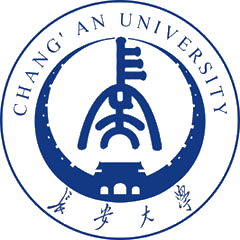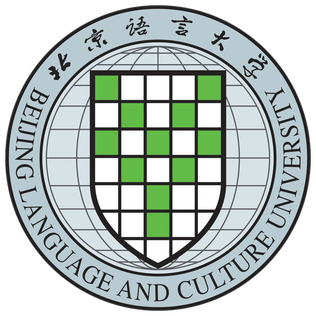
Chang'an University is a public university located in Xi'an, Shaanxi, China. It is affiliated with the Ministry of Education, and co-funded with the Ministry of Transport, the Ministry of Natural Resources, the Ministry of Housing and Urban-Rural Development, and the Shaanxi Provincial People's Government. The university is part of the Double First-Class Construction and Project 211.

Xi'an Jiaotong University is a public university in Xi'an, Shaanxi, China. It is affiliated with and funded by the Ministry of Education of China. The university is part of Project 211, Project 985, and the Double First-Class Construction.

Beijing Jiaotong University is a public university in Haidian, Beijing, China. It is affiliated with the Ministry of Education, and co-funded by the Ministry of Education, the Ministry of Transport, the Beijing Municipal People's Government, and China State Railway Group Company Limited. The university is part of the Double First-Class Construction and Project 211.

Beijing Language and Culture University is a public university of linguistics in Haidian, Beijing, China. It is affiliated with the Ministry of Education of China.

Sichuan International Studies University is a public research university in Chongqing, China. It is one of the top eight foreign studies universities in China.

Shanghai International Studies University (SISU) is a public university in Shanghai, China. It is affiliated with the Ministry of Education, and co-funded by the Ministry of Education and the Shanghai Municipal People's Government. The university is part of Project 211 and the Double First-Class Construction.

Hankuk University of Foreign Studies is a private research university based in Seoul, in South Korea. The university currently teaches 45 foreign languages. In addition, it contains studies in humanities, law, political science, social sciences, business, medical science, natural sciences, and engineering.

The Guangdong University of Foreign Studies (GDUFS) (Chinese: 广东外语外贸大学; lit. 'Guangdong Foreign Languages and Foreign Trade University') is a leading public university with emphasis in foreign languages and cultures, overseas economy and trade, and international strategies in Guangzhou, Guangdong, China. It has been selected as one of the national 2011 Program. GDUFS is the Chinese partner institution of the United Nations University Outreach Programme for the training of high-end translators, the founding member of the Conférence Internationale Permanente d'Instituts Universitaires de Traducteurs et Interprètes (CIUTI) and the International Federation of Translators (FIT). It is also an important base for the training of international talents and the international dissemination of foreign languages and literature, global economic governance and Chinese culture. The university is ranked 151-200 in linguistics and 251-300 in English Language and Literature by QS World University Rankings. Together with Beijing Foreign Studies University and Shanghai International Studies University, it is considered one of the top 3 universities in Linguistics in China. GDUFS is also one of the first universities to introduce a Cyber Security Major with a focus on Natural Language Processing (NLP) in China.

Northwestern Polytechnical University is a public science and engineering university in Xi'an, Shaanxi, China. It is affiliated with the Ministry of Industry and Information Technology. The university is part of Project 211, Project 985, and the Double First-Class Construction.
Xi'an University of Architecture and Technology (XUAT) is one of China's eight historic institutions specializing in civil engineering and architecture. It was once a key university directly overseen by the former Ministry of Metallurgical Industry. Located in Xi'an, Shaanxi Province, its roots can be traced back to Beiyang University, founded in 1895. During the nationwide restructuring of China's higher education system in 1956, XUAT was formed through the merger of the Northeast Institute of Technology, Northwest Institute of Technology, Qingdao Institute of Technology, and the civil engineering, construction, and environmental departments of the South Jiangsu Polytechnic Institute. The university was renamed Xi'an Metallurgical Institute in 1959 and later Xi'an Metallurgical and Architectural Institute in 1963. It adopted its current name, Xi'an University of Architecture and Technology, in March 1994.
Xi'an Polytechnic University is a college located in Xi'an, in the Shaanxi province, China.

Shaanxi Normal University is a public university in Chang'an, Xi'an, Shaanxi, China. It is affiliated with the Ministry of Education. The university is part of the Double First-Class Construction and Project 211.

Yanta District is one of 11 urban districts of the prefecture-level city of Xi'an, the capital of Shaanxi Province, Northwest China. The district borders the districts of Weiyang to the north, Lianhu, Beilin and Xincheng to the northeast, and Chang'an to the south.

Xi'an Shiyou University is a university in Xi'an, China. It also called Xi'an Petroleum University and is the only multi-disciplinary college in Northwest China that is characterized by petroleum and petrochemicals. XSYU is one of five famous petroleum universities in China and owns undergraduate, postgraduate to doctoral student complete training system.
The Xi'an University of Science and Technology (西安科技大学) is a provincial public university in Xi'an, Shaanxi, China. It is affiliated with the Province of Shaanxi, and co-funded by the Shaanxi Provincial People's Government and the Ministry of Emergency Management.

The University of International Business and Economics is a public university located in Chaoyang, Beijing, China. It is affiliated with the Ministry of Education. and co-funded by the Ministry of Education and the Ministry of Commerce. The university is part of Project 211 and the Double First-Class Construction.
Du Ruiqing was a Chinese translator, educator, and academic administrator. He was a founder of Australian studies in China. He served as president of Xi'an Foreign Languages Institute from 1998 to 2005. He edited the New Century Chinese-English Dictionary, and was conferred the 4th Lifetime Achievement Award by the China Dictionary Society.
Xi'an University of Technology is a provincial public comprehensive university in Xi'an, Shaanxi, China. The university is co-sponsored by the Ministry of Industry and Information Technology and the Shaanxi Provincial Government.

Xi'an International University is a private college in Xi'an, Shaanxi, China.

















